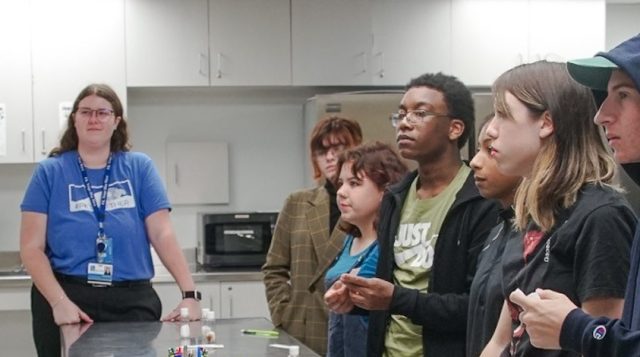Nutritional Sciences Major
What is Nutritional Sciences?
Nutritional Sciences is the study of how food impacts human health, including nutrition-related chronic disease, malnutrition, metabolism, dietary patterns, and food insecurity. Nutritional scientists use chemistry, biology, nutrition, and the social sciences to understand and influence how diet shapes the health of individuals and populations.
Is Nutritional Sciences right for you?
The Nutritional Sciences curriculum is designed for preprofessional students who plan to enter health-related professional schools or graduate school. The curriculum develops a strong, broad background in biology, chemistry, and math. Its requirements closely match the prerequisites for most professional schools and it provides a background in nutrition that is an asset for any health profession. It also provides an excellent foundation for graduate study in nutrition, health, and other science fields.
Where do graduates from the Nutritional Sciences work?
Graduates from this curriculum have entered medical, dental, pharmacy, osteopathic, podiatry, optometry, chiropractics, physician assistant, veterinary, and other professional programs. Research-oriented students have entered graduate programs in nutrition or biochemistry. Other career opportunities include pharmaceutical sales, extension nutrition education, nutrition policy development, and employment with government agencies.
-
Quick Facts
- The Nutritional Sciences curriculum is designed for preprofessional students who plan to enter health-related professional schools or graduate school. The curriculum develops a strong, broad background in biology, chemistry, and math. Its requirements closely match the prerequisites for most professional schools, and it provides a background in nutrition that is an asset for any health profession. It also provides an excellent foundation for graduate study in nutrition, health, and other science fields.
- Graduates from this curriculum have entered medical, dental, pharmacy, osteopathic, podiatry, optometry, chiropractic, physician assistant, veterinary and other professional programs. Research-oriented students have entered graduate programs in nutrition or biochemistry. Other career opportunities include pharmaceutical sales, extension nutrition education, nutrition policy development, and employment with government agencies.
- Throughout the course of UF’s Nutritional Sciences major, Bachelor of Science students become well versed in biology, chemistry, nutrition and disease, genomics and biostatistics, and social science.
- The Food Science and Human Nutrition department offers a Ph.D. in Nutritional Sciences.
-
Current research projects in Nutritional Sciences
Come visit our faculty research page.
- Course Curriculum
-
What are the differences between Food Science, Nutritional Sciences, and Dietetics?
Food Science involves the biological, chemical, and physical properties of food, including how to process, manufacture, transport, and store food products.
Nutritional Sciences involves studying how food impacts human health, including nutrition-related chronic disease, malnutrition, metabolism, dietary patterns, and food insecurity.
Dietetics involves applying knowledge of food and nutrition to understanding and promoting the health and well-being of individuals and populations. A registered dietitian is required to complete a minimum of a graduate degree (Master's or Doctorate) program, a 1,000-hour dietetic internship, a national registration exam, state licensure (depending on the state), and continuing education each year to maintain registration and licensure credentials.
- HOW TO APPLY
-
Questions? Contact Us?
Contact Student Services here.



